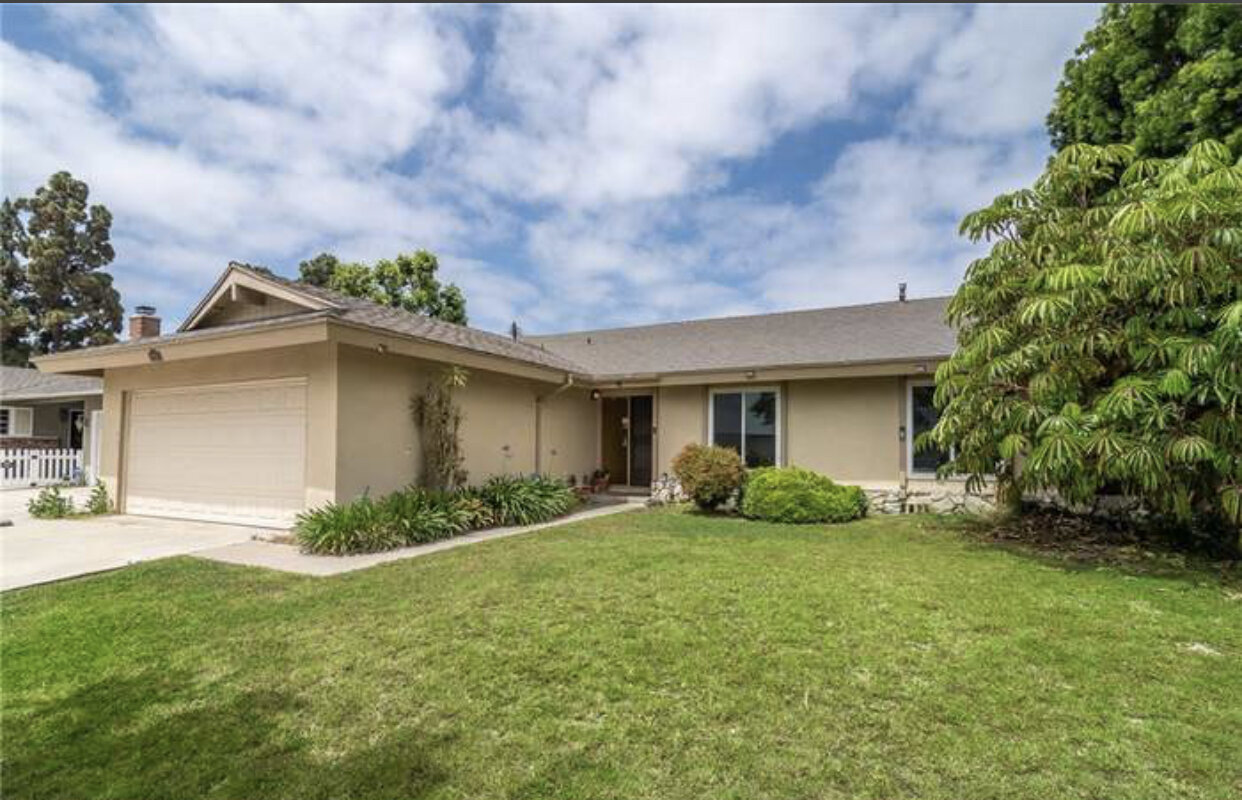Selling a house with unpermitted work in Los Angeles, CA, can be daunting. However, working with a cash buyer can bypass many complications and costs related to unapproved renovations. Just fill out the email form, and we’ll reply with your offer!
Unpermitted work can involve anything from a basement remodel to a kitchen overhaul; without the right permits, these upgrades can lead to selling challenges.
This guide covers everything you need to know about selling a home with unpermitted work, from getting the necessary permits to understanding potential consequences and costs.
How to Get a Permit After Work Has Been Done
1. Assess the Situation
The first step is to identify any unpermitted work in your home. Imagine you’ve installed a brand-new bathroom or remodeled your kitchen—it might have felt like a simple upgrade, but it can pose major issues without the correct permits. Consider bringing in a licensed contractor or architect to assess the situation. They’ll be able to pinpoint any unpermitted work and help you determine what steps to take next.
2. Contact the Local Building Department
After assessing your situation, you must contact the local building department in Los Angeles or your respective California jurisdiction. They will guide you on what’s needed to apply for permits retroactively. You may need to submit detailed documents and plans that show how the work was done, ensuring it complies with local building codes.
3. Prepare Documentation
You’ll need to gather detailed plans and specifications for the unpermitted work. Everything needs to be documented, whether structural changes, plumbing upgrades, or a new air conditioning system. This might feel tedious, but having everything laid out properly will save you time and effort during the permitting process.
4. Submit Permit Applications
Once your documentation is ready, submit it along with your permit application to the Los Angeles building department. At this stage, you’ll likely need to pay fees depending on the extent of the work. The typical fee can range from $50 to $2,000, so be prepared.
5. Schedule Inspections
Once your application is in, the building department will schedule inspections. Whether you’ve done work on your plumbing, electrical system, or structural changes, they’ll need to verify that it complies with current Los Angeles building codes. Depending on the scope of the work, this might take multiple inspections.
6. Make Necessary Corrections
If the inspector identifies issues during the inspection, you must make the required corrections. Perhaps the wiring in your new kitchen doesn’t meet the code, or the plumbing in your bathroom needs to be updated. Whatever the case, you’ll need to hire professionals to bring everything up to standard before moving forward.
7. Obtain Final Approval
Once all corrections are made and the work passes inspections, the building department will issue final approval or a certificate of occupancy. This final document certifies that your home complies with Los Angeles regulations and that the work is legitimate.
Get an offer today, sell in a matter of days.
Consequences of Unpermitted Residential Work
Legal and Financial Risks
If the unpermitted work in your home is discovered, you could face serious legal and financial consequences. Imagine getting hit with hefty fines from California authorities or being forced to undo all the work you’ve completed. In some cases, unpermitted work can even lead to legal action, especially if safety concerns arise, and you may need to seek legal advice to deal with potential lawsuits.
Reduced Property Value
Unpermitted work can lower the market value of your home. Buyers might hesitate to purchase a house with outstanding permit issues, and real estate agents often advise against it. They see the red tape in correcting unpermitted work and the potential for additional costs, making it harder to sell your home for what it’s truly worth.
Difficulty Obtaining Financing
If you’re trying to sell a home with unpermitted work, your potential buyers may have difficulty securing a loan or mortgage. Lenders typically require that all work on a property be fully permitted, particularly regarding important systems like plumbing, electrical, or structural modifications. This can add yet another layer of complexity to an already complicated situation.
Complications During Home Inspections
Unpermitted work often raises a major red flag during a home inspection. For example, the inspector may find unapproved changes in your garage or additions to your unit, which can lead to delays or cancellations in the sale process. A potential buyer might ask you to resolve the issue before they proceed, putting you in a tough spot.
Liability Issues
You may also be liable for any damages or injuries caused by unpermitted work. Imagine someone being injured because of faulty electrical wiring or a collapse caused by an unauthorized structural change. Without proper insurance coverage, you could be held responsible for the consequences.
Increased Insurance Premiums
If you’ve completed unpermitted work, your home insurance premiums may increase, or your policy could be voided. Insurance companies see unpermitted work as a major risk and may refuse to cover any damages related to these modifications. Ensuring your home complies with California regulations is essential to maintaining affordable and reliable coverage.
When a Permit is Required for Home Repairs
Structural Changes
Picture this: you’ve decided to open your living room by knocking down a wall or adding an extra bedroom to your Los Angeles home. These types of structural changes need a permit because they impact the safety and integrity of your home. Failing to get a permit could lead to fines, forced removal of the work, or worse. If you don’t want to risk losing the work you’ve done, get a permit before making any structural alterations.
Electrical Work
Maybe you’ve added new lighting in your kitchen or rewired part of your garage. All electrical work—whether big or small—requires a permit. Faulty wiring is one of the leading causes of house fires, and California doesn’t take this lightly. Ensuring your electrical changes meet building codes is essential for safety and resale value.
Plumbing Work
If you’re replacing old pipes, installing a new water heater, or upgrading your bathroom, these plumbing jobs require permits. Unpermitted plumbing work can cause significant damage over time, and the last thing you want is a flooded kitchen or a backed-up sewer system just because you didn’t get the proper approvals.
HVAC Systems
Installing or replacing your HVAC system also requires a permit. Whether swapping out an old furnace or installing air conditioning in your Southern California home, getting a permit is important to ensure the system is safe and efficient.
Additions
Any additions to your home—whether it’s a new garage, deck, or bedroom—need a permit. Adding extra space impacts your home’s structure, market value, and often its safety. Check with the local building department for approvals to add to your Los Angeles home.
Roofing
Roof repairs or replacements require a permit because they involve the safety of your home’s structure. Whether redoing the whole roof or making significant repairs, you must follow Los Angeles building codes. Roofing issues that go unnoticed can create major problems, such as water damage or mold growth.
Windows and Doors
A permit is required if you change the size or shape of windows and doors. These alterations affect the structural integrity of your home, and you’ll want to ensure they’re done right to avoid problems later, especially during a home inspection when you’re ready to sell.
Decks and Patios
Building or modifying decks or patios might seem like simple jobs, but they require permits, too. Elevating a deck or adding structural supports could present safety issues if not done correctly. You don’t want to run into issues when selling your home, so getting a permit for your outdoor living space is crucial.
Minor Repairs Typically Not Requiring Permits
Painting and Wallpapering
Cosmetic updates like painting or adding new wallpaper don’t require a permit. You’re free to make these changes whenever you like, and they can greatly impact the look and feel of your home without all the red tape.
Flooring
Replacing the flooring in your home—whether with hardwood, carpet, or tile—doesn’t need a permit. You can move forward without worrying about building department approval if you’re not changing the foundation or structure.
Minor Plumbing Repairs
You don’t need a permit to fix leaks or swap out old fixtures like a faucet. However, if you’re making more substantial changes, such as installing new pipes or water systems, you’ll want to double-check with your local Los Angeles authorities.
Landscaping
Want to plant some trees or install garden beds? Landscaping work doesn’t generally require permits unless you’re planning significant modifications like installing retaining walls or major water features. Always check with your local authorities if you’re unsure.
How to Check House Permits

Contact the Local Building Department
If you’re unsure whether permits were pulled for work on your home, your first step is to contact the local building department. They can provide records of any approved permits for your property.

Use Online Permit Databases
Many cities in California, including Los Angeles, have online databases where you can check for permits by entering your property address. These databases give you access to records of issued permits, work types, and inspection statuses.

Review Property Records
Another way to check for permits is by reviewing property records, such as title reports or previous sales documents. These can often indicate whether any permitted work was completed on the home.

Hire a Professional Inspector
For added peace of mind, you can hire a professional home inspector. They’re skilled at spotting unpermitted work and can verify whether the necessary permits were obtained for previous construction, plumbing, or electrical work.
The Permitting Process
1. Determine Permit Requirements
Contact the Los Angeles building department to find out which permits you need for your project.
2. Prepare Permit Applications
Gather all required documents for your permit application, including plans and specifications.
3. Submit Applications and Pay Fees
Submit your application and pay the required fees.
4. Schedule Inspections
Inspections will be scheduled once your permit is issued to ensure the work complies with local building codes.
5. Make Necessary Corrections
If any issues arise during inspections, you must correct them before moving forward.
6. Obtain Final Approval
After the work passes all inspections, you’ll receive a certificate of occupancy or final approval.
Associated Costs
Permit Application Fees
Vary depending on the work, ranging from $50 to over $2,000.
Inspection Fees
Inspection fees are often included in the permit application fees, but additional fees may apply for follow-up inspections. Typical fees range from $100 to $500 per inspection. Because of this, it’s important to get the work done right the first time.
Correction Costs
The costs of correcting code violations or deficiencies vary based on the nature of the work. Hiring licensed contractors to make necessary repairs can cost anywhere from a few hundred to several thousand dollars.
Penalties and Fines
If local authorities discover unpermitted work, you may face penalties and fines. These can range from a few hundred to several thousand dollars, depending on the severity of the violations.
Professional Fees
Hiring contractors, architects, or inspectors to assist with the permitting process can increase the overall cost. Typical fees vary based on the scope of the project and the professionals involved.
How Dasaa Investments Can Help
At Dasaa Investments, we understand that dealing with unpermitted work can be overwhelming. As real estate investors, we specialize in buying homes as-is, so you won’t need to worry about getting permits or making costly corrections.
- Quick and Fair Offers: We provide fast and competitive offers, allowing you to sell your property without the usual headaches.
- No Permitting Hassles: We buy houses in any condition, so you don’t need to deal with the complex permitting process.
- Streamlined Process: Our simple and transparent process ensures a smooth and stress-free transaction. Contact us today if suppose you want to sell your house without the hassle of an unpermitted way. We’re here to help you sell your home quickly and efficiently.

